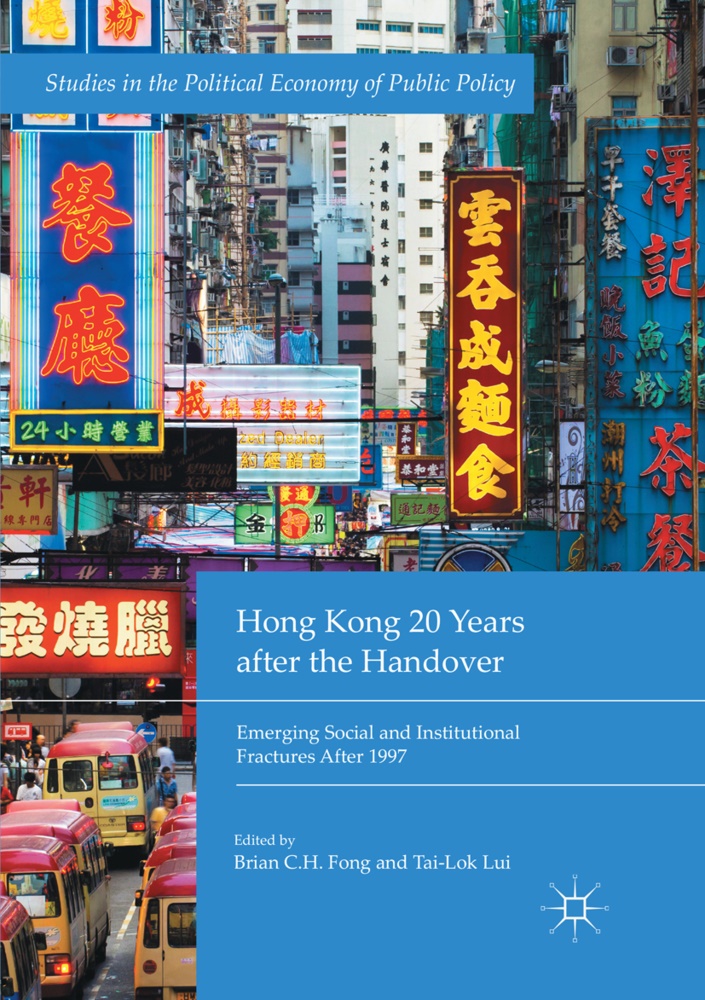Read more
This book examines the socio-political conflicts which have arisen since Hong Kong's return to China and confronts the fundamental problems in the design of the One Country, Two Systems (OCTS) Model. It considers not only the issue of democratization, but also the institutional fractures in the executive-dominant political system and the disconnection between the executive and the legislature. It describes the drastic changes which have affected social mobilization and political activism in Hong Kong, as well as the pattern of interaction between the government and civil society. This edited volume brings together a team of cutting-edge researchers to examine the operation of the One Country, Two Systems (OCTS) Model in Hong Kong over the past 20 years. The discussion and analysis offered by the contributors will cast light on social and political tensions and conflicts that will continue to unfold in the coming years. This timely account, published on the 20th anniversary of the handover, will be a valuable read for students and scholars of Chinese and East Asian studies.
List of contents
Introduction: "One Country, Two Systems" From Theory to Practice: Emerging Social and Institutional Fractures in Hong Kong since 1997; Lui, Tai Lok and Brian C.H. Fong.- Part I: Constitutional and political fractures.- Chapter 1: The Impasse over Constitutional Reform: Negotiating Democracy in Hong Kong; Poon, Kit.- Chapter 2: From Executive-dominance to Fragmented Authority: An Institutional and Political Analysis; Ma, Ngok.- Chapter 3: Executive-legislative Disconnection in the HKSAR: Uneasy partnership between Chief Executives and pro-government parties, 1997-2016; Brian C.H. Fong.- Chapter 4: Changing Political Activism: Before and after the Umbrella Movement; Lam, Wai Man.- Chapter 5: State Capacity and Political Disconnection in the HKSAR: The Case Study of Healthcare Financing Reform; Chan, Alex Wo-shun.- Part II: Economic and social fractures.- Chapter 6: Financialization and Economic Inequality in Hong Kong: The Cost of Finance-led Growth Regime; Lee, Kim Ming.- Chapter 7: Unequal Vulnerability to Social Risks: Analysis of Hong Kong's Social Strata; Chan, Chi Kit and Ho, David Wai Lun.- Chapter 8: Housing Policy and Social Discontent after 1997: History and Continuity of Home Ownership; Yau, Ken.- Chapter 9: Growing Tensions in Hong Kong's State-Nonprofit Relations; Kwan, Ricky Chi-kin and Chui, Ernest Wing-tak.- Chapter 10: A Historical Perspective on Hong Kong Autonomy: Traditions of British Imperialism, Maritime Enclave and Contending Views of British Interest; Yep, Ray Kin Man.- Chapter 11: In Beijing's Tight Embrace: Hong Kong-Mainland Relations amid Integration and Confrontation; Cheung, Peter Tsan Yin.- Chapter 12: Undoing China's Charm Offensive: Chinese Tourists in Hong Kong's News Discourses (2003-2015); Chan, Chi Kit.- Chapter 13: Fading Opportunities: Hong Kong in the Context of Regional Integration; Lui, Tai Lok.- Epilogue: Falling Apart?: Fractures in "One Country, Two Systems" Model; Lui, Tai Lok and Brian C.H. Fong
div>
About the author
Dr. Brian C.H. Fong is Associate Director of The Academy of Hong Kong Studies at The Education University of Hong Kong.
Professor Lui Tai-lok is Vice President (Research and Development), Chair Professor of Hong Kong Studies and Director of The Academy of Hong Kong Studies at The Education University of Hong Kong.
Summary
Examines the social and political development of Hong Kong, ahead of the twentieth anniversary of its return to China in 2017
Identifies the underlying fractures in the existing design and operation of “One Country Two Systems”
Appeals to students and scholars of political science, public policy and Asian studies

